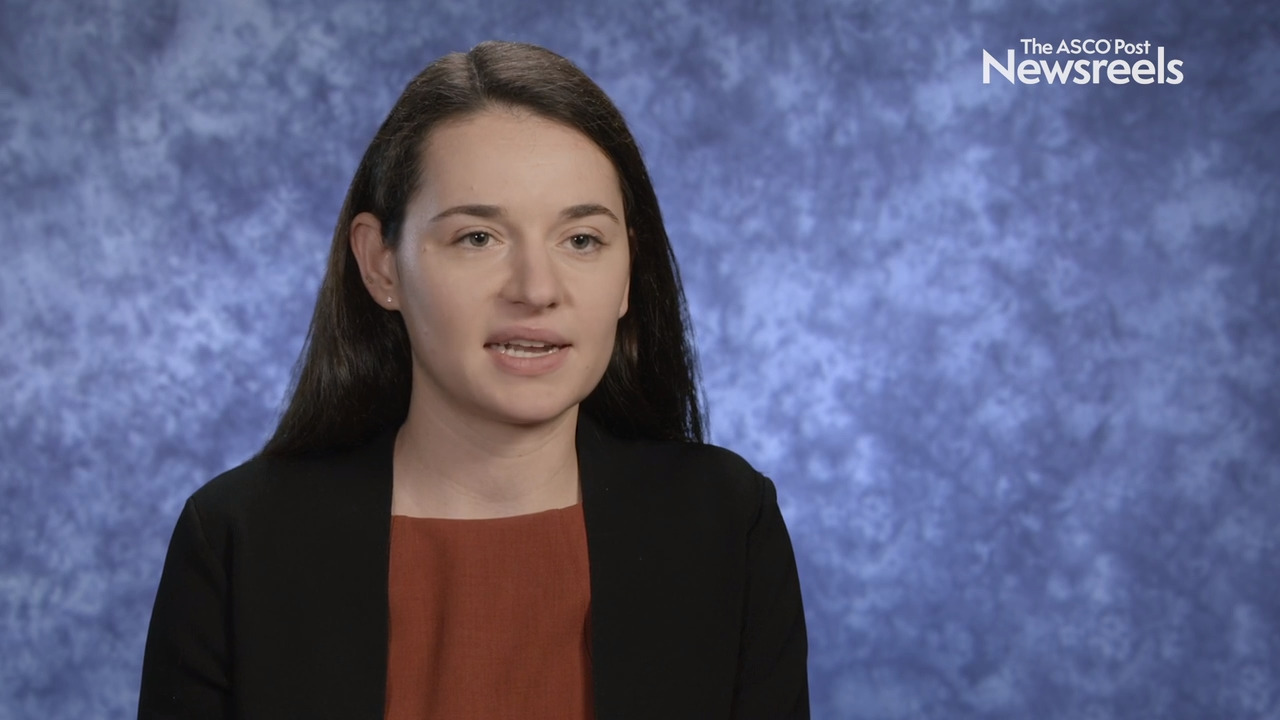Van K. Morris, MD, on Stage II Colon Cancer: Circulating Tumor DNA as a Predictive Biomarker in Adjuvant Chemotherapy
2020 Gastrointestinal Cancers Symposium
Van K. Morris, MD, of The University of Texas MD Anderson Cancer Center, discusses the COBRA study, which is examining circulating tumor DNA and its ability to predict whether patients with resected stage IIA colon cancer may benefit from adjuvant chemotherapy (Abstract TPS261).
Danielle S. Bitterman, MD, of the Harvard University Radiation Oncology Program and Massachusetts General Hospital, discusses an analysis of genomic and clinical data from 97 patients with pancreatic ductal adenocarcinoma with circulating tumor DNA. Mutations were most frequently detected in patients with locally advanced and metastatic disease (Abstract 753).
Scott Kopetz, MD, PhD, of The University of Texas MD Anderson Cancer Center, discusses phase III findings from the BEACON CRC trial, which had demonstrated that the triplet regimen of encorafenib, cetuximab, and binimetinib significantly improved overall survival in patients with a BRAF V600E mutation. The new analysis showed that the regimen also led to substantial improvement in patient-reported quality of life compared with current standard of care (Abstract 8).
Franck Pagès, MD, PhD, of the Hôpital Européen Georges Pompidou, discusses study findings from the prospective IDEA France cohort study of patients with stage III colon cancer treated with mFOLFOX6. The study showed that patients with an intermediate or high Immunoscore seemed to benefit from 6 months of mFOLFOX6 treatment compared with 3 months (Abstract 10).
Thibaud Kössler, MD, PhD, of Geneva University Hospital, discusses the first trial to study the efficacy and safety of anti–PD-1 immunotherapy plus short-course radiotherapy in localized microsatellite-stable rectal cancer. The study explores whether a gene signature can predict sensitivity to immunotherapy (Abstract TPS272).
Eyal Meiri, MD, of the Cancer Treatment Centers of America at Southeastern Regional Medical Center, discusses his findings on heavily pretreated patients with colorectal cancer with high tumor mutational burden. Monotherapy with pembrolizumab showed antitumor activity, which merits further study to confirm efficacy (Abstract 133).





